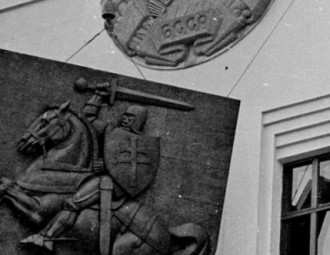Twenty years have passed since the referendum of 1995

This referendum introduced new symbolics and narrowed the usage of the Belarusan language.
The first referendum of the independent Belarus was held on May 14, 1995. It was initiated by President Aliaksandr Lukashenka.
Four questions were asked:
1. Do you want the Russian language to get the same status as Belarusian?
2. Do you support the introduction of a new State Flag and National Emblem of the Republic of Belarus?
3. Do you support the Belarusian President’s actions aimed at the economic integration with the Russian Federation?
4. Do you agree with the necessity of changing the Constitution of the Republic of Belarus so that the President could dissolve the Supreme Council in case of a systemic or rude violation of the Constitution?
The first three questions were obligatory and the fourth one was consultative.
BPF’s protests in the Supreme Council and the remarks that the questions connected with the state symbols and language could not be decided at a referendum were ignored, Euroradio recalls.
As a result, most people answered ‘yes’ to all the questions.
-
03.01
-
07.10
-
22.09
-
17.08
-
12.08
-
30.09








































